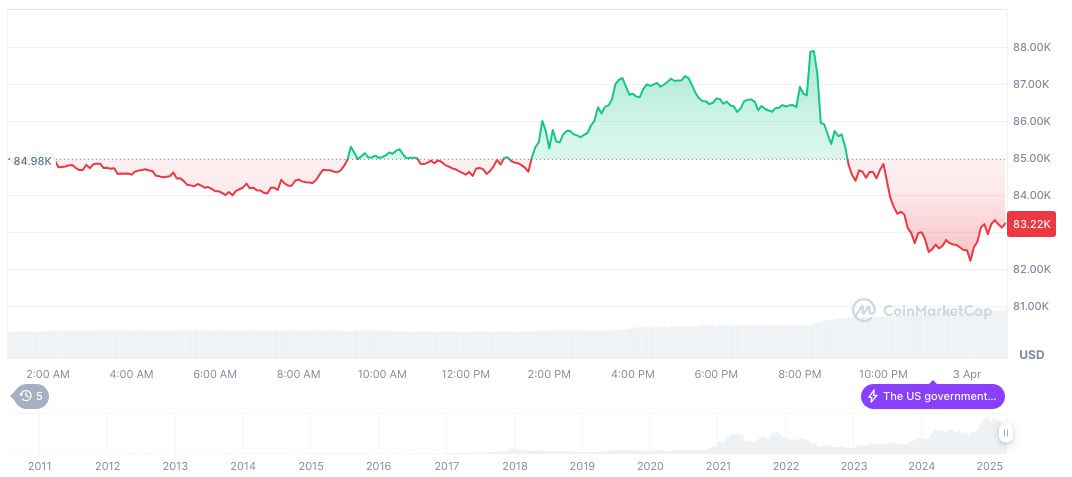- Main event, leadership changes, market impact, financial shifts, or expert insights. U.S. House Committee passed the Anti-CBDC Act; Tom Emmer leads effort against surveillance.
- Concise takeaway, up to 13 words. Bill limits Federal Reserve CBDC initiatives, ensuring financial privacy.
- Additional critical impact in 13 words max. Supports decentralized cryptocurrencies like Bitcoin; challenges U.S. financial innovation.
The U.S. House Financial Services Committee approved the Anti-CBDC Surveillance State Act on April 3, 2025, in a 27-22 vote. The bill, led by Tom Emmer, seeks to prevent the Federal Reserve from creating a digital currency.
The bill affects privacy and innovation debates, potentially boosting decentralized digital currencies and challenging U.S. financial strategies.
Anti-CBDC Surveillance State Act Passes House Vote
The Anti-CBDC Surveillance State Act, backed by Tom Emmer, received support from Republican members, including Patrick McHenry, and organizations like the Heritage Foundation. Emmer asserted the bill limits potential surveillance from a government-issued digital currency. Supporters argue it protects against misuse akin to systems in China, while opposition from Democratic members considers it restrictive to innovation. “If not designed to be open, permissionless, and private – resembling cash – a government-issued CBDC is nothing more than an Orwellian surveillance tool,” emphasized Emmer, underscoring the privacy concerns. Top endorsements came from groups favoring individual financial liberties.
The legislation blocks Federal Reserve initiatives involving digital currency without Congress’s consent, influencing Bitcoin and Ethereum’s favor as free-market alternatives. Analysts predict this may affect the dollar’s competitiveness amid rising global digital currencies.
Coincu research highlights potential chilling effects on CBDC innovation amidst existing privacy concerns. While support for decentralized currencies may grow, complexity in future U.S. financial regulations looms, emphasizing careful strategy for technological transitions.
Bitcoin’s Market Decline Amidst Legislative Changes
Did you know? Similar bills have faced hurdles in Senate due to Democratic opposition while sparking debates on privacy and innovation for years.
According to CoinMarketCap, Bitcoin’s current price is $83,099.07, with a market capitalization of formatNumber($1,649,175,036,627.48, 2). The cryptocurrency faces price declines of -2.06% over 24 hours and -4.46% across 7 days. Trading volumes rose formatNumber($53,886,350,334.90, 2) by 92.39%.

Coincu research highlights potential chilling effects on CBDC innovation amidst existing privacy concerns. While support for decentralized currencies may grow, complexity in future U.S. financial regulations looms, emphasizing careful strategy for technological transitions.























